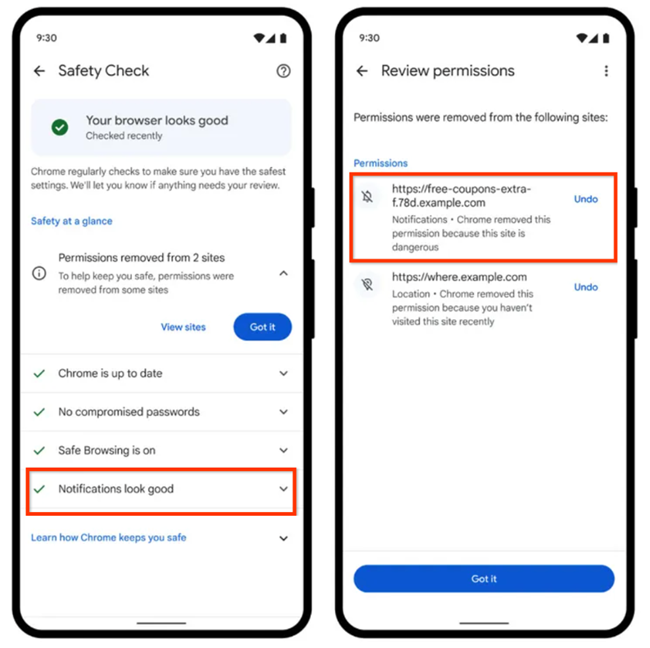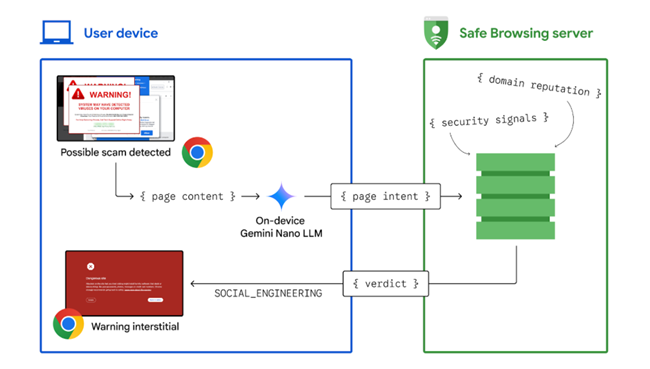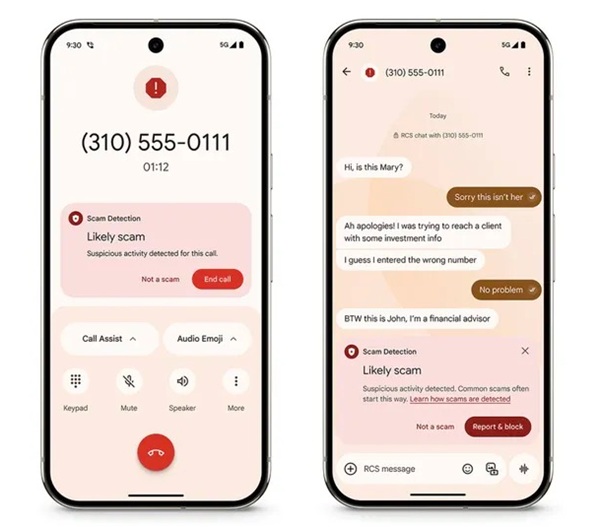
Google on Thursday shared how it’s using AI to improve safety across Search, Chrome, and Android, with new updates designed to block scams, fake notifications, and tech support fraud more effectively.
AI Now Blocks More Scams in Search
In Search, Google’s AI systems now block hundreds of millions of scam-related pages every day. According to Jasika Bawa, Group Product Manager for Chrome, the company’s upgraded scam-detection tools now catch 20 times more scam results than before.
Google has also seen a spike in fake airline customer support scams—where users are tricked into calling scam phone numbers. Bawa said that thanks to AI, these kinds of scams in Search have been cut down by over 80%.
Chrome Safe Browsing Gets Smarter with Gemini Nano
Chrome’s Safe Browsing now uses Gemini Nano, Google’s on-device AI model, on desktop to improve protection for users with Enhanced Protection enabled, said Phiroze Parakh, Senior Director of Engineering.
This AI model instantly analyzes websites on the device to detect suspicious behavior, even from sites that have never been reported before. It helps guard against tech support scams—websites that fake security alerts and pressure users into giving access or payments. Google said this feature will expand to Android and support more scam categories soon.
New AI Warnings for Scam Notifications on Android
Google is also introducing AI-powered alerts in Chrome for Android to deal with scam notifications. Scammy websites often send pop-up messages that mislead users into clicking dangerous links or giving up personal data.

Key features include:
- Chrome’s on-device AI model scans notifications and flags suspicious ones.
- Users get a warning and can choose to unsubscribe or view the message.
- If the warning is incorrect, users can choose to receive future notifications from that site.
How Chrome Detects Scam Notifications
Chrome’s AI analyzes notification text, including titles, bodies, and buttons, to detect scams or spam. This process is carried out on the device to maintain privacy. Google explained that the system was trained using synthetic data from its Gemini LLM and verified with real-world examples by human reviewers.
This feature is launching first on Android, where most notifications are sent, but Google may bring it to more devices later.
Other Chrome Notification Safety Tools
Chrome already offers a few tools to limit scammy alerts:
- Abusive site detection: Chrome removes notification permissions from harmful websites and lists them in the Safety Check section.
- One-tap unsubscribe: Android users can easily block notifications from any site.
- Notification management: Users can control notification permissions by going to Chrome > Settings > Privacy and Security > Site Settings > Notifications

Protecting Against Tech Support Scams with On-Device AI
In tech support scams, criminals trick users into believing their computer is infected and demand money or access. These scams often use full-screen warnings, block keyboard input, or impersonate system alerts.
Chrome version 137 adds a new layer of defense using Gemini Nano to spot scam behavior in real time. When a risky page is visited, Gemini Nano looks for signs—like using APIs that lock the keyboard—and analyzes the page’s intent.

If flagged as a scam, Chrome sends the analysis to Safe Browsing, which may then show a warning. All processing is done on the device and doesn’t slow down browser activity. Users who’ve enabled Enhanced Protection will get the strongest benefits, but even Standard users will be protected as new scams are added to blocklists.
Detecting Scams as Users See Them
Google noted that many scam sites only stay live for less than 10 minutes and often show different content to users and security scanners. On-device analysis helps catch these scams as they appear to real users, making detection faster and more accurate.
Call and Message Scam Protection for Android
Beyond the browser, Google is also using on-device AI in its Messages and Phone apps to detect scam texts and calls. These scams may appear innocent at first but can quickly turn into fraud.

Looking Ahead: Broader Scam Protection
Google said it plans to extend these protections to stop other types of fraud—like fake package tracking links or unpaid toll scams. Gemini’s AI will also be used to extract more advanced signals from web content. The company aims to roll out many of these protections to Chrome on Android later this year.
